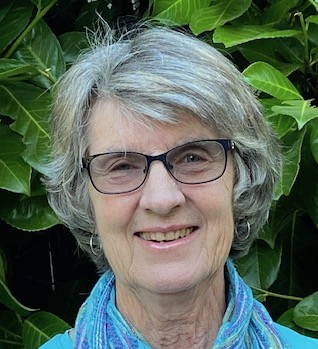In these days when our entire world faces a new and deadly virus, some perspective might be found in a look back to another virus that once struck us. Polio.
My friend, Susan Wyatt, has just published a family memoir about her own father, Forrest Clough, who struggled against the crippling effects of this disease, A “Polio” Finds His Way: My Father’s Remarkable Journey.

It’s a loving tribute to a man who never knew the joy of walking without a crutch, never ran, never jumped, never danced. But he played a mean trumpet and traveled the world, married a gutsy and devoted woman, and fathered two children.
Despite his disability from a dread disease that attacked him at the age of four months, he forged his way through life with a good humor and resilience that seldom failed him.
I especially enjoyed the chapters where Susan describes his adventures with the Southern Methodist University (SMU) marching band which toured the nation with the football team and gained considerable attention. That’s Forrest in his band uniform on the book cover. He didn’t march but he added his fine trumpeting when the band played in the stands. His brilliance with the trumpet led to other gigs as well.
Susan relays some of the history of polio. Historians believe the disease may have been around from as early as 3700 B.C. from evidence of a disfigured Egyptian mummy.

It may have come across populations in waves. It ravaged Forrest in 1909. Presidential historians will remember it struck Franklin Delano Roosevelt in 1921 at the age of 39. And Susan herself caught it in 1952 when she was in the third grade, although she did not suffer the paralysis her father did.
As we sit isolated, impatiently waiting and hoping for a vaccine for Covid-19, it’s unsettling to realize how long it took to come up with a vaccine for polio. We think little of it now as we and our children receive vaccines for polio.
I don’t remember the fears that swept through the country before they had a vaccine for polio. Maybe Oregon, where I grew up, had fewer cases than in other parts of the country. But I do remember getting that sugar cube–which Susan explains in her book was not available until the 1960s. Fortunately the efforts against past diseases have taught researchers a lot and will hopefully speed up today’s search dramatically.
Susan found a wealth of material for her book, thanks to her father’s diligence in recording so much of his active life in several scrapbooks he kept over the years. Then she brings in her own story and her growing understanding of the tolls polio has taken on her own life. The book is a story of challenges, of many helping friends along the way, early days in radio, and meetings with some influential people.
Susan herself has an impressive resume with her overseas work in the U.S. State Department, work stateside in career counseling, and her years as a Foreign Service Spouse, which she describes in another book, Arabian Nights and Daze: Living in Yemen with the Foreign Service.